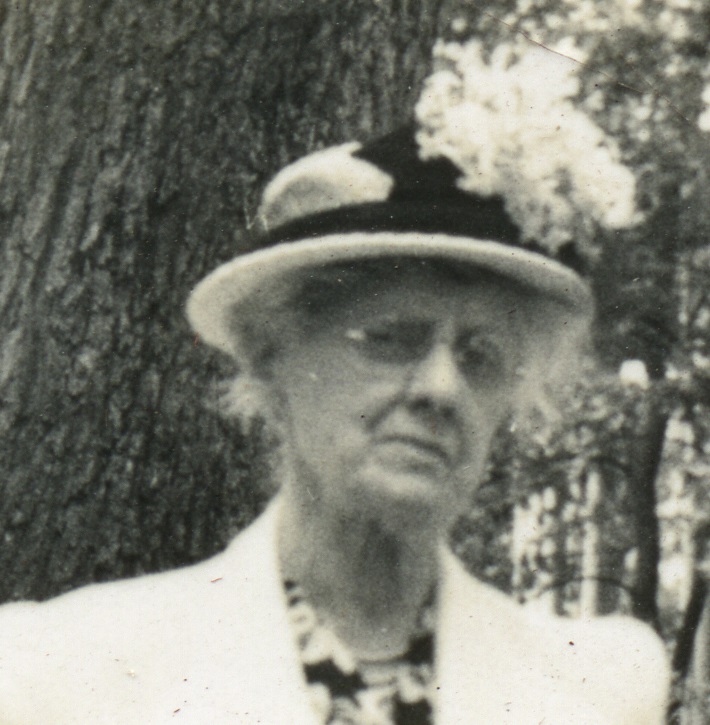When researchers first visit the Walter Havighurst Special Collections and University Archives whether for a class, research, or just to stop by, they are always amazed by the many collections that we possess. We pride ourselves in the vast amount of primary resources we have on various topics such as the history of the book, playbooks from the Cradle of Coaches Archive, and more. While many are in awe of our collections, there are a number of topics or types of materials that we do not have. We are adding women’s diaries with our most recent acquisition.

In October, we acquired the beginnings of a new collection. This collection will hold the diaries of women from various time periods. Our first set of diaries are those of Mrs. Margaret Watson Gillespie Fagg (November 4, 1863 – July 3, 1955). The entries cover years 1917 through 1949. Although consecutive diaries are not in this collection, the entries tell a story of her day to day experiences during WWI, The Great Depression, and WWII eras. Although we are uncertain of these being the only diaries she had, it appears that the diaries in this collection start at a pivotal point in her life. 1917 was the year her husband, John Gerardus Fagg, passed away. It was their marriage that increased her commitment to the Reformed Church in America (RCA). She served as a missionary assistant during the Amoy Mission with him immediately after they were married in 1889 through 1894. This mission was from the Reformed Protestant Dutch Church to China where her husband trained Chinese Christians to be pastors and preachers.
While the aforementioned periods of time could be seen as challenging times for individuals and families, Fagg focused more on her positive interactions with people she’s met over the years and keeping track of her meetings with people and organizations. The entries in her diaries from 1917-1919 are predominantly about the soldiers she met at Camp Merritt while working in the library. She would write for several pages about what soldiers were doing. One of many stories she wrote about was about finding a letter in the library written by Alvin E. Milton, a bugler, at Camp Merritt describing him being assigned to be on the ship that escorted Woodrow Wilson to Paris to attend the Paris Peace Conference on December 2, 1918.
While her entries were much shorter in her later diaries, it is quite clear that she was heavily involved with her church, the Women’s Board of Foreign Missions (WBFM), and the International House. The WBFM was created “to aid the BFM [Board of Foreign Missions] of the RCA by promoting its work among the women and children of [nonreligious] lands”. (Kansfield, 2004) It is through this work, women like Fagg were able to experience and learn about the world through a different lens.
“[A]cquiring knowledge about the lives of these women and children quickly became an obsession. They knew from the start that in order to help other women in foreign lands, they had to know who these women were, how they lived and what their lives were like. Learning about the lives of women and children in foreign lands and the work of missionaries… opened unforeseen doors and windows into the world. It removed the Reformed Church women from their limited and self-contained lives and opened before them a vastly new and exciting world.” (p. 32)
This experience naturally propelled Fagg to surround herself with those who possessed varying views than her own and lived a different life based on their culture. It can be inferred that this is what drew her to participating in activities with the International House. According to the International House’s website (International House, 2022), their mission “is to enable selected university students, fellows, faculty, and interns from countries around the world and the United States to live and learn together in a challenging and supportive residential community in New York City that builds life-long qualities of leadership, respect, empathy, and moral courage among individuals of all nations and backgrounds.” The “obsession” that was spoken of above could be shown through Fagg’s memorandum book containing the names and some addresses of Chinese students that she’s met and corresponded with.
The greatest benefit to having these and other collections of women’s diaries is more opinions of historical events or the ability to get a sense of everyday life for women as most stories heard, especially during this timeframe, are told from the perspective of men. Fagg’s husband was very well known amongst the members of the Reformed Church in America.There are a number of publications about him and his time with the Reformed Church in America, but not about the contributions she made as well.
- 1898-1910: Corresponding foreign secretary for China
- 1910-1916: Chair of the Missionary Candidate Committee
- 1939-1945: Chair of Missionary Hospitality Committee (Kansfield, 2004, p. 127-129)
To read in her own words about the life she led, the Fagg Collection is open for research weekdays 9am-4 pm. Appointments are preferred and can be made on our appointment page. Stay tuned for more information on our next women’s diaries acquisitions.
Referenced Sources:
International House. (2022). Our Mission, Vision and Values. https://www.ihouse-nyc.org/about-student-housing-in-ny/our-mission-vision-and-values/
Kansfield, M. (2004). Letters to Hazel: Ministry within the Woman’s Board of Foreign Missions of the Reformed Church in America. Reformed Church Press
